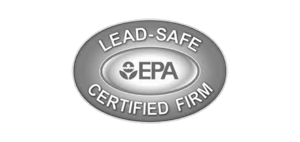If you or your tenants wake up one morning to find five inches of water flooding the bathroom or kitchen, it can be a little jarring, to say the least. After you’ve gotten past the initial shock, it’s imperative to determine where the water is coming from, as it can make all the difference in how you tackle the clean up.
Generally speaking, water damage comes from one of three categories of water: clean, grey or black. Note, the terms grey and black have nothing to do with the color of water or how it appears; the labels refer simply to how badly the water has been contaminated.
Clean Water:
The first category of water damage is from clean water. Of the three, this is the most pleasant of situations you can find in your home.
What to do When Clean Water Floods Your Home
It’s every homeowner’s nightmare. You come home to find that a pipe has burst or the sink has overflowed, and water is everywhere. The first thing you want to know is whether the water is clean or not. Here’s a quick overview of what you need to know.
What is Clean Water?
Clean water is free from pathogens and bacteria. It could come from a broken pipe or an overflowing sink, but it can also come from rainwater or melting snow if you have a leaky roof. As long as you remove the water and fully dry out the area in a timely fashion, it is unlikely to cause any health risks, and furniture and carpeting can usually be salvaged.
However, if left standing for too long, it can quickly cause mold or mildew problems. Worse, it can transform to grey water if too many microbes begin multiplying. That’s why it’s important to act quickly when clean water floods your home.
What to Do When Clean Water Floods Your Home
The first thing you need to do is stop the source of the flooding if you can. If a pipe has burst, turn off the water at the main valve. If the flooding is coming from rainwater or melting snow, try to patch up the leak in your roof until you can get professional help. Once you’ve stopped the source of the flooding, it’s time to start removing the water.
You can do this with a wet/dry vac, buckets, or towels. Just make sure that you don’t use anything that hasn’t been washed in hot water recently, as you don’t want to reintroduce bacteria into the equation. Once you’ve removed as much water as possible, it’s time to start drying out the area. Open up any doors and windows that you can and set up fans to help circulate air. If possible, remove any soaked carpets or rugs so they can dry out more quickly.
Once everything is dry, give your home a good cleaning with hot water and antibacterial soap to prevent mold or mildew from taking hold.
No one ever wants to deal with a flood, but knowing what kind of water you’re dealing with—and how to properly clean it up—can make all the difference in minimizing damage and preventing further problems down the road. So remember: if clean water floods your home, act quickly to remove it and dry out the area completely to prevent mold or mildew from taking hold.
Call us here at Distinctive Restoration to get your home checked out immediately.
Gray Water:
What is Grey Water and How to Handle It
Grey water is a type of contaminated water that can pose a health risk if not handled properly.
Grey water is wastewater that does not contain fecal matter. It can come from a variety of sources, including washing machines, toilets, and rain runoff. While grey water does not contain the same level of contaminants as black water, it can still pose a health risk if not handled properly.
How to Handle Grey Water
The first step in cleaning up grey water is to identify the source. If possible, you should turn off the water source to prevent any further contamination. Once the source has been identified and stopped, you can begin the cleanup process.
You will need to wear protective clothing, including gloves, boots, and a face mask. Use a mop or sponge to remove as much water as possible from the affected area. You can then use a wet vacuum to suck up any remaining water. Be sure to dispose of the vacuum bags in a sealed garbage bag.
Once the area is dry, you will need to disinfect it using a bleach solution. To make the solution, mix 1 cup of bleach with 1 gallon of water. Once the area has been disinfected, you can begin the process of rebuilding and restoring your home.
Grey water can be a challenge to clean up after a flood, but it’s important to handle it properly to avoid any health risks.
That’s why we recommend calling out the experts for all your water damage issues. Distinctive Restoration will be there in a very short time as we only serve the Coachella Valley.
Black Water:
The worst of the trio, black water, is something homeowners or property managers would prefer to never experience. Black water is contaminated water that commonly occurs in the event of a sewage backup or natural disaster, for example.
It’s teeming with toxic bacteria, pathogens and other harmful substances that are dangerous to deal with. Not only can it damage your home, it’s incredibly harmful to humans as it can cause breathing problems, infections, and allergic reactions. In this scenario, you must hire a professional, as they have the equipment, cleaning products, and protective gear that it demands.
Additionally, they have the know-how on how to dispose of the water, as it is illegal to discard it into sewer drains, for instance. They will also be able to tell you how long occupants need to be out of the house/affected area while the situation is dealt with.
Once professionals are able to remove black water, it’s inevitable that the area is going to require renovation. Anything that’s come into contact with black water needs to be tossed into the garbage.
Wall-to-wall carpeting? It will never be clean again so just kiss it goodbye.
When it comes to water damage, regardless of the flood source, it’s always best to call the professionals. They have the experience and skills to handle any situation, which will put you at ease even if it’s a case of the dreaded black water.
Additionally, they can assist with any renovations necessary and help you decide what’s safe to keep and what needs to go in the house. It’s not worth trying to save a few bucks if you end up in the hospital with an infection thanks to mistaking black water for grey water.



















